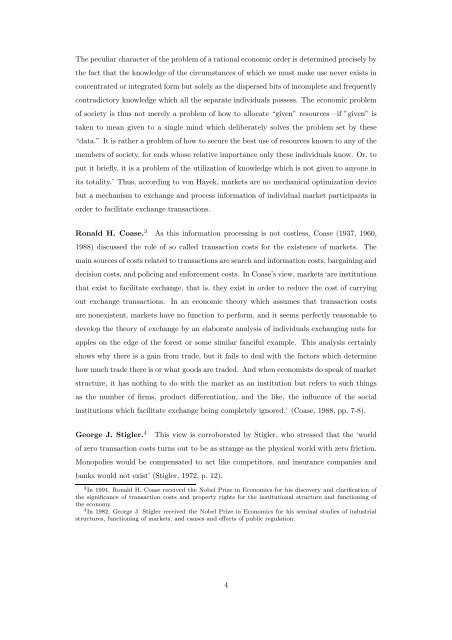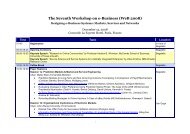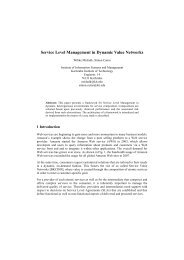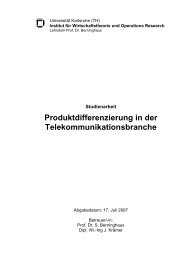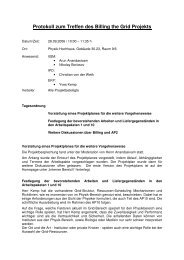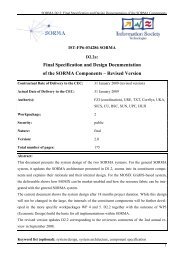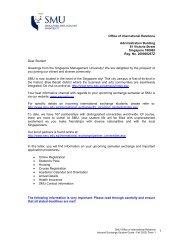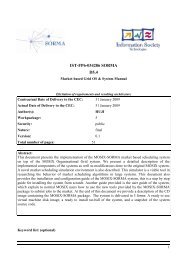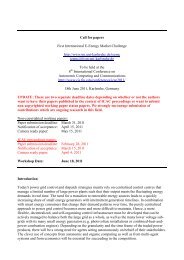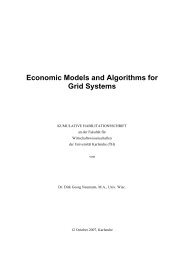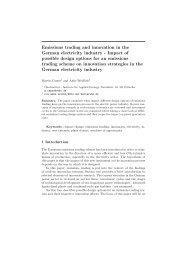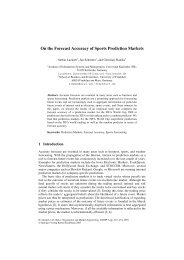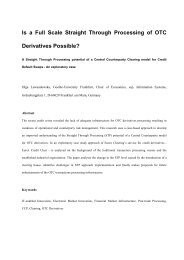Market Engineering - KSRI - Karlsruhe Service Research Institute - KIT
Market Engineering - KSRI - Karlsruhe Service Research Institute - KIT
Market Engineering - KSRI - Karlsruhe Service Research Institute - KIT
Create successful ePaper yourself
Turn your PDF publications into a flip-book with our unique Google optimized e-Paper software.
The peculiar character of the problem of a rational economic order is determined precisely by<br />
the fact that the knowledge of the circumstances of which we must make use never exists in<br />
concentrated or integrated form but solely as the dispersed bits of incomplete and frequently<br />
contradictory knowledge which all the separate individuals possess. The economic problem<br />
of society is thus not merely a problem of how to allocate “given” resources—if ”given” is<br />
taken to mean given to a single mind which deliberately solves the problem set by these<br />
“data.” It is rather a problem of how to secure the best use of resources known to any of the<br />
members of society, for ends whose relative importance only these individuals know. Or, to<br />
put it briefly, it is a problem of the utilization of knowledge which is not given to anyone in<br />
its totality.’ Thus, according to von Hayek, markets are no mechanical optimization device<br />
but a mechanism to exchange and process information of individual market participants in<br />
order to facilitate exchange transactions.<br />
Ronald H. Coase. 3 As this information processing is not costless, Coase (1937, 1960,<br />
1988) discussed the role of so called transaction costs for the existence of markets. The<br />
main sources of costs related to transactions are search and information costs, bargaining and<br />
decision costs, and policing and enforcement costs. In Coase’s view, markets ‘are institutions<br />
that exist to facilitate exchange, that is, they exist in order to reduce the cost of carrying<br />
out exchange transactions. In an economic theory which assumes that transaction costs<br />
are nonexistent, markets have no function to perform, and it seems perfectly reasonable to<br />
develop the theory of exchange by an elaborate analysis of individuals exchanging nuts for<br />
apples on the edge of the forest or some similar fanciful example. This analysis certainly<br />
shows why there is a gain from trade, but it fails to deal with the factors which determine<br />
how much trade there is or what goods are traded. And when economists do speak of market<br />
structure, it has nothing to do with the market as an institution but refers to such things<br />
as the number of firms, product differentiation, and the like, the influence of the social<br />
institutions which facilitate exchange being completely ignored.’ (Coase, 1988, pp. 7-8).<br />
George J. Stigler. 4<br />
This view is corroborated by Stigler, who stressed that the ‘world<br />
of zero transaction costs turns out to be as strange as the physical world with zero friction.<br />
Monopolies would be compensated to act like competitors, and insurance companies and<br />
banks would not exist’ (Stigler, 1972, p. 12).<br />
3 In 1991, Ronald H. Coase received the Nobel Prize in Economics for his discovery and clarification of<br />
the significance of transaction costs and property rights for the institutional structure and functioning of<br />
the economy.<br />
4 In 1982, George J. Stigler received the Nobel Prize in Economics for his seminal studies of industrial<br />
structures, functioning of markets, and causes and effects of public regulation.<br />
4


